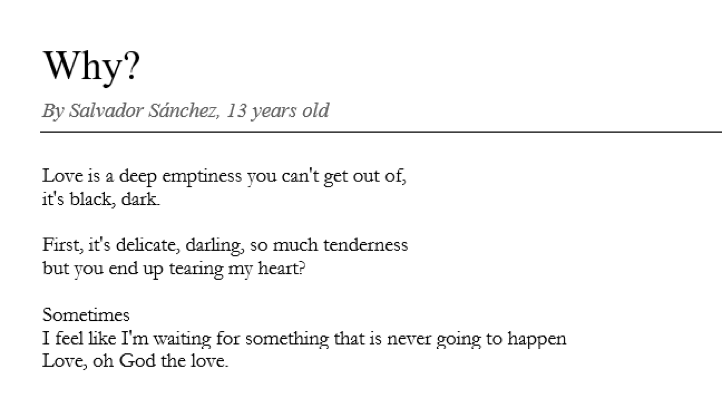The power of the magic pencil
In March and April 2022 I led a creative-writing workshop with students at the Learning Center. It was an exciting and satisfying experience for me, and I hope for them. For me, it was another phase of a journey begun five years ago.
At that time, planning a long stay in Southeast Asia, I was poking around the Web for volunteer work I could do, and came upon a program called Writing Through. The description said it uses creative writing to develop thinking skills, self-esteem, and English fluency to help give underprivileged youths a better future. This matched my interests and experience very well:
Writing workshops. I’ve made my living as a writer. CHECK.
Improving English fluency. I’d spent many years as an English and ESL teacher. CHECK
Helping youths improve self-esteem. I’d worked as a therapist in a clinic with adolescents. CHECK
The 'Writing Through' program
'Writing Through' was developed by an American woman, Sue Guiney, when she was volunteering at an orphanage in Cambodia. While the youths were focused on learning English as the key to a better future, she realized that creative thinking, self-expression and self-esteem were also important. From that orphanage in Siem Reap, Writing Through expanded to other countries and now is offered around the world online. The workshop consists of five sessions. Students are taught how to brainstorm and the elements of poetry, short stories and journal entries. They first write as a group, and then on their own. On the last day they practice reading their work to an audience in preparation for what is called “The Big Event” when they present to an audience of students, teachers and school officials. A party follows.
No mistakes, magic pencils and magazines
When I read the description I was taken by the ingenuity of the design. Students are given what are called magic pencils to stimulate creativity, told not to think and to let ideas come, and that “There are no mistakes” – they must silence their inner critic. A local teacher fluent in both language assists, since it is important that students understand what is being said and how to express their ideas in English. At the end they are given a certificate and a magazine with all the works written.
I’ve gone to Cambodia several times to give the Writing Through workshops in small towns much more remote than Oaxaca. It was wonderful experience every time, to work with smart, creative youths, eager to learn, and to see them develop their skills and self-confidence.
It was long my hope to give them in Oaxaca, where I live. I discussed the possibility with various organizations, and with the support of Susan Connor and Jaasiel Quero of the Learning Center, Writing Through arrived in Mexico.
What we did and how it went.
The workshop was held online on four consecutive Friday afternoons. and the Big Event on April 10. I led it with help from Patty Bierley, a Writing Through volunteer I’d worked with in Cambodia. FOLC board member Viviana Ruiz beautifully translated my not always clear English. Ruben Yahel Sosa helped with the planning and ensured that it would come off as smoothly as possible.
Well, not always so smooth. Connection problems sometimes bumped students out and at times made it impossible to see and hear them and for us to be heard. That made it difficult to work one-on-one with students as we do in-person. But the perseverance and patience of everyone — the students above all — made it work. Almost every student was able to write a poem and some wrote stories. Although they wrote on their phones, I arranged for them to have magic pencils to use at other times, as a stimulus to the imagination and reminder of the creative writing process.
Our theme was Taking Risks, chosen together with the team from the Learning Center. I was delighted with the choice as it's particularly relevant for young people who have to take risks in order to learn and succeed: their challenge is in weighing up what is worth the risk and when something is just too risky.
We discussed examples, then brainstormed ideas and phrases to use in their poems. Patty and I reminded them that they were taking a risk by taking the workshop – baring their feelings and writing and speaking in another language. They wrote about some of their deepest emotions – loneliness, love, and fear.
On the last day, they practiced reading their poems out loud – slowly, nervously, with sometimes unclear pronunciation. We coached them with a light touch, pronouncing a word or phrase and asking them to repeat.
At the Big Event two days later, the transformation seemed miraculous. Their confidence and pronunciation were considerably improved. No nervousness or hesitation. We could hear something of who they are and what they learned in what they wrote and how they spoke it. I think you’ll hear it too when you read their poems…
Links
1. Website https://writingthrough.org
2. YouTube videos
Introduction
https://www.youtube.com/watch?v=m-T2GB6fsC8
Impact on students
https://www.youtube.com/watch?v=Dy6upNU4R1A
Impact on students
https://www.youtube.com/watch?v=wdvyNwzLPmc
Writing Through channel
https://www.youtube.com/channel/UCLSAlHF90PgVY31KY5A0m5Q
3. Facebook https://www.facebook.com/writingthrough
4. Twitter https://twitter.com/writing_through
5. Instagram https://www.instagram.com/writingthrough





